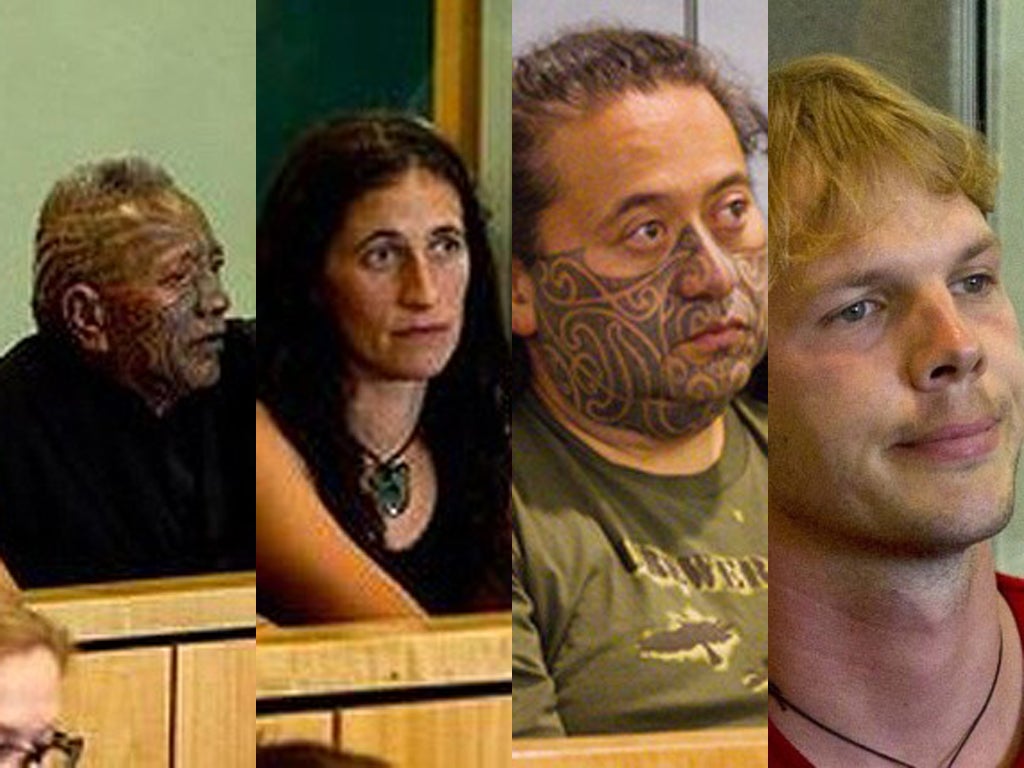Jailing of Maori separatists stirs colonial-era resentment
Militant Tuhoe tribe members defiant amid claims race relations had been set back 100 years

It began with dawn raids and claims of an IRA-style plot by militant Maori separatists to assassinate politicians and unleash guerrilla warfare. Yesterday, New Zealand's most bizarre – and expensive – criminal case ended with two men jailed, but the public still baffled about events in the remote, mist-shrouded Urewera mountains.
The mountains, home to the fiercely independent Tuhoe tribe, were the site of military-style training camps where recruits learnt to use AK-47s and mount kidnaps and ambushes, according to police. Seventeen people were arrested in the nationwide swoop in 2007, amid plans to invoke tough new anti-terrorist laws. The raids – which saw doors kicked down and people forced out at gunpoint – stunned New Zealanders. Meanwhile, the focus by police on one Urewera hamlet, Ruatoki, revived grievances dating back to British colonisation. Protest marches were staged across the country, and a Maori leader warned that race relations had been set back by 100 years.
From the outset, though, many locals were sceptical about a terror plot, noting that one of the alleged ringleaders, Tame Iti, was better known for colourful stunts such as shooting the New Zealand flag and baring his buttocks at the Queen. Among those detained were a ragtag band of anarchists, environmentalists and peace activists, some of them white. Very quickly the case began to unravel. The Solicitor-General, David Collins, ruled out prosecutions under the anti-terrorism legislation, which he branded "incoherent". Charges against 13 people were dropped after the Supreme Court ruled that video evidence had been unlawfully obtained.
The remaining four defendants – including Mr Iti, who is from Ruatoki and has a moko, or traditional full-face tattoo – were convicted in March of possessing illegal firearms and Molotov cocktails. He and another man, Te Rangikaiwhiria Kemara, were jailed for two-and-a-half years yesterday. Sentencing for two others, Urs Signer and Emily Bailey, was adjourned. However, the jury – which watched surveillance footage of armed men in camouflage gear and balaclavas in the forest and listened to phone-tapped discussions about "smashing the state" – could not reach a verdict on a more serious charge of belonging to an organised criminal group. New Zealanders are thus none the wiser about what went on in this isolated corner of the North Island.
Were those overheard talking about blowing up power stations and assassinating then prime minister Helen Clark really plotting an armed revolution and the establishment of an independent Tuhoe state, as police insist? Or were they, as the defendants claimed, merely teaching hunting and survival skills – or playing out harmless commando fantasies?
In the Ureweras, a deep sense of injustice still burns. The raids rekindled memories of the violence and repression which the Tuhoe – known as the "Children of the Mist" – suffered at the hands of British colonisers. Most of the tribe's land was confiscated in the 1860s after they refused to give it up. The tradition of resistance continues. Mr Iti performed a defiant haka, or war dance, after being sentenced.
Subscribe to Independent Premium to bookmark this article
Want to bookmark your favourite articles and stories to read or reference later? Start your Independent Premium subscription today.

Join our commenting forum
Join thought-provoking conversations, follow other Independent readers and see their replies